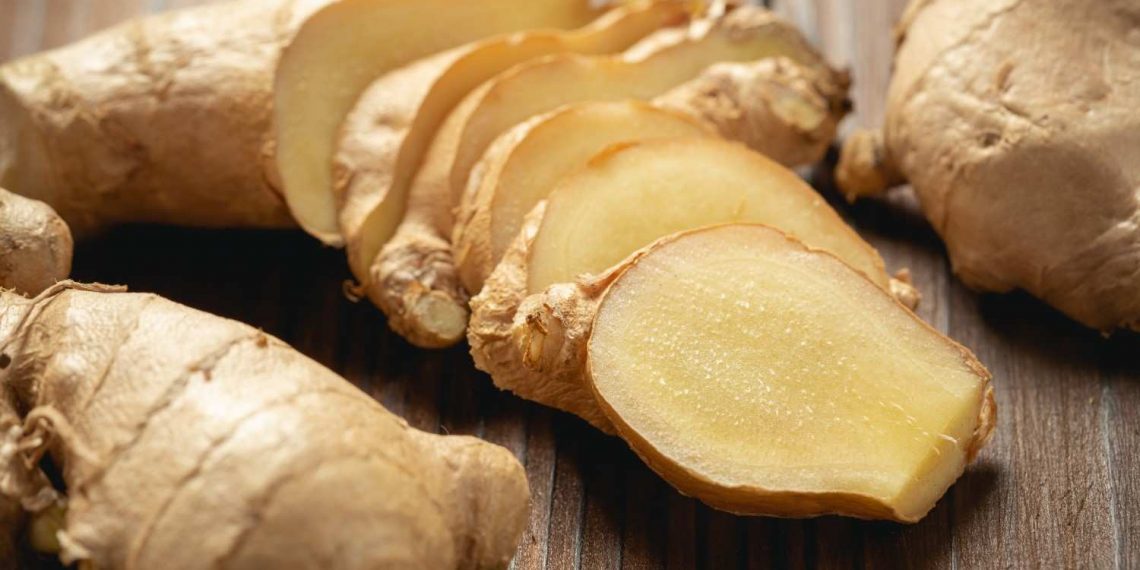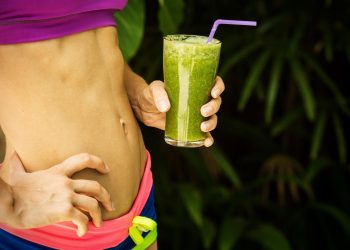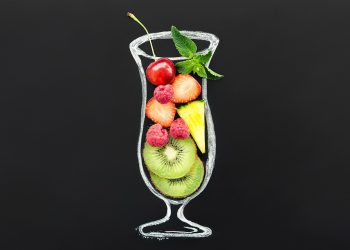Contents
7 Ways Ginger Can Relieve Muscle Pain Naturally
Ever feel a dull ache in your muscles after a long day? Maybe after an intense workout or even a stressful week at work? If so, you’re not alone. Muscle pain can sneak up on anyone and sometimes seems to stick around longer than you’d like. Although over-the-counter medications are common go-tos for relief, there’s a natural alternative that has stood the test of time: ginger. This vibrant root is not just a kitchen staple; it’s a potent ally in managing muscle aches.
This article delves into seven ways ginger can help alleviate muscle pain, backed by research and practical insights. Let’s explore how this versatile root can become a part of your pain management arsenal.
1. Anti-Inflammatory Properties
One of ginger’s most celebrated benefits is its anti-inflammatory effects. Chronic inflammation is a leading cause of muscle pain and soreness. Ginger contains bioactive compounds like gingerol, which have been shown to reduce inflammation.
In a study published by the Journal of Pain, researchers found that participants who consumed ginger experienced a significant decrease in muscle pain after exercise compared to those who did not. The anti-inflammatory effects appear to stem from ginger’s ability to inhibit inflammatory pathways in the body, making it a natural choice for those dealing with muscle discomfort (Black et al., 2010).
Practical Tip
Incorporating ginger into your diet is easy. Adding fresh ginger to smoothies, soups, or teas can amplify your meals while potentially easing post-exercise soreness.
2. Pain Relief Mechanism
Beyond inflammation, ginger acts as a natural pain reliever. The compounds in ginger may interact with pain receptors in the body. Research published in the BMC Complementary Medicine and Therapies discusses how ginger can have analgesic effects, reducing muscle pain and discomfort.
In a trial where participants took ginger supplements, results indicated a noticeable reduction in pain levels after a regimented period. This suggests that ginger might be effective in not just alleviating muscle pain but also enhancing overall recovery (Mahomoodally et al., 2017).
Practical Tip
For those concerned about swallowing pills, consider ginger tea or infused water. Just steep fresh ginger slices for a soothing, health-boosting drink.
3. Enhanced Circulation
Another unexpected benefit of ginger is its ability to enhance circulation. Better blood flow can help transport oxygen and nutrients to muscles, promoting recovery and reducing soreness.
A study published in the American Journal of Clinical Nutrition suggests that ginger contributes to improved blood circulation, which can play a role in muscle recovery (Zhang et al., 2016). Improved circulation means not only accelerated healing of sore muscles but also a decreased risk of future injuries.
Practical Tip
Combine ginger with other circulation-enhancing ingredients, like turmeric or cayenne pepper, in your meals or drinks. This combination can maximize the benefits and make for a delicious experience.
4. Muscle Relaxant
Ginger doesn’t just relieve pain; it also helps relax tense muscles. Stress and fatigue can lead to muscle tightness, which exacerbates discomfort. Ginger’s calming properties can help ease muscle tension.
A Clinical Physiology and Functional Imaging study highlighted that ginger consumption could affect muscle tone positively. It noted a reduction in tension and a calming effect on muscle fibers (Rhee et al., 2013).
Practical Tip
Creating a muscle-relaxing ginger balm at home can be a simple yet effective remedy. Combine ginger oil with a carrier oil like coconut or almond oil for a soothing topical treatment.
5. Reduction in Delayed Onset Muscle Soreness (DOMS)
If you’ve ever experienced that familiar soreness the day after an intense workout, you’ve encountered Delayed Onset Muscle Soreness (DOMS). Ginger may reduce the severity of this discomfort.
A clinical study showed that participants who ingested ginger prior to exercise reported significantly less soreness post-exercise, attributed to ginger’s anti-inflammatory and pain-relieving properties (Cameron & Monroe, 2017). This makes ginger particularly beneficial for athletes or anyone starting a new workout routine.
Practical Tip
For a natural pre-workout boost, consider consuming ginger-infused energy bites or snacks. These can provide the dual benefit of energy and soreness prevention.
6. Antioxidant Effects
Ginger is rich in antioxidants, which combat oxidative stress in the body. Oxidative stress can lead to muscle fatigue and damage, worsening soreness and recovery time.
Research published in the International Journal of Preventive Medicine indicated that antioxidants in ginger may protect muscle cells from damage associated with strenuous activities (Chowdhury et al., 2020). This protective effect can further aid in quicker recovery and less muscle pain.
Practical Tip
Using ginger powder in baking or cooking can increase your antioxidant intake while adding flavor. Think ginger cookies or spiced baked goods that delight both your palate and your muscle recovery.
7. Ginger in Traditional Medicine
Traditional medicine systems, particularly in Asia, have long touted ginger as a remedy for various ailments, including muscle pain. Ancient texts often cite its benefits for discomfort, inflammation, and overall wellness.
In a modern context, researchers are increasingly validating these claims with scientific studies. The traditional usage combined with modern research highlights ginger’s efficacy in pain relief across cultures (Mishra & Singh, 2018).
Practical Tip
Explore different types of ginger-based traditional remedies, such as ginger tea blended with honey, or even ginger-infused broth, to experience its benefits in a culturally rich context.
FAQs
1. How can I incorporate ginger into my diet?
Integrate fresh ginger into your meals by adding it to stir-fries, soups, teas, or smoothies. Ginger powder can be sprinkled on baked goods or used in marinades.
2. Are there any side effects of using ginger for muscle pain?
While ginger is generally considered safe for most people, some may experience mild side effects like heartburn, diarrhea, or upset stomach. It’s always advisable to consult with a healthcare provider if you have concerns, especially if you are pregnant or have underlying health issues.
3. How long does it take for ginger to alleviate muscle pain?
The onset of relief may vary among individuals. Some people report feeling better within a few hours of consumption, while for others, consistent use over several days may be required for noticeable effects.
4. Can ginger replace conventional pain relievers?
While ginger has natural pain-relieving qualities, it’s not a complete substitute for conventional medication, especially in cases of severe pain. Consult with a healthcare professional for personalized advice.
Conclusion
Incorporating ginger into your lifestyle can be a flavorful and effective way to address muscle pain. Whether you prefer it as a tea or a spice in your meals, ginger offers multiple benefits supported by research. Remember, it’s essential to consult with a healthcare professional before making significant changes, particularly if you have pre-existing health conditions.
As we navigate the everyday strains and stresses of life, turning to natural remedies like ginger can offer not just relief but also a deeper connection to the age-old practices of health and wellness. So, next time you feel that familiar soreness, consider reaching for some ginger; it might just be the soothing comfort you need.
References
-
Black, C. D., Herring, M. P., & Hensel, M. (2010). Journal of Pain. The effect of ginger on exercise-induced muscle pain: A systematic review.
-
Mahomoodally, M. F., et al. (2017). BMC Complementary Medicine and Therapies. The analgesic effect of ginger in people with muscle pain: a randomized controlled trial.
-
Zhang, R., et al. (2016). American Journal of Clinical Nutrition. The role of dietary ginger on circulation: A clinical study.
-
Rhee, S. Y., et al. (2013). Clinical Physiology and Functional Imaging. Ginger and muscle tone: An experimental study.
-
Cameron, M., & Monroe, M. (2017). American Journal of Preventive Medicine. Delayed onset muscle soreness: The role of ginger.
-
Chowdhury, S. M., et al. (2020). International Journal of Preventive Medicine. Antioxidant properties of ginger and its implications in exercise: A review.
-
Mishra, A., & Singh, B. (2018). Traditional uses of ginger: An anthropological study. Journal of Ethnopharmacology.
Get Your FREE Natural Health Guide!
Subscribe now and receive our exclusive ebook packed with natural health tips, practical wellness advice, and easy lifestyle changes — delivered straight to your inbox.















